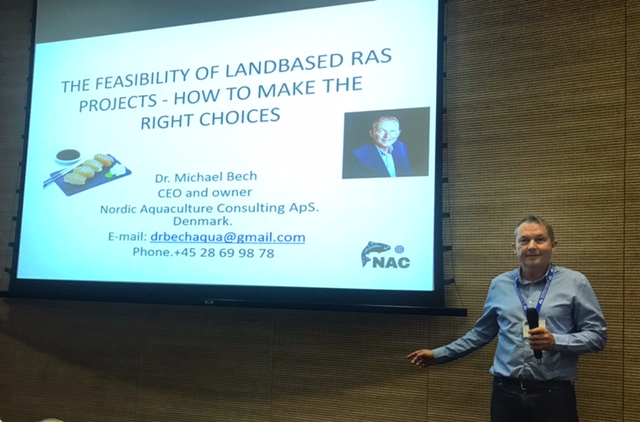Aquaculture Consulting Services
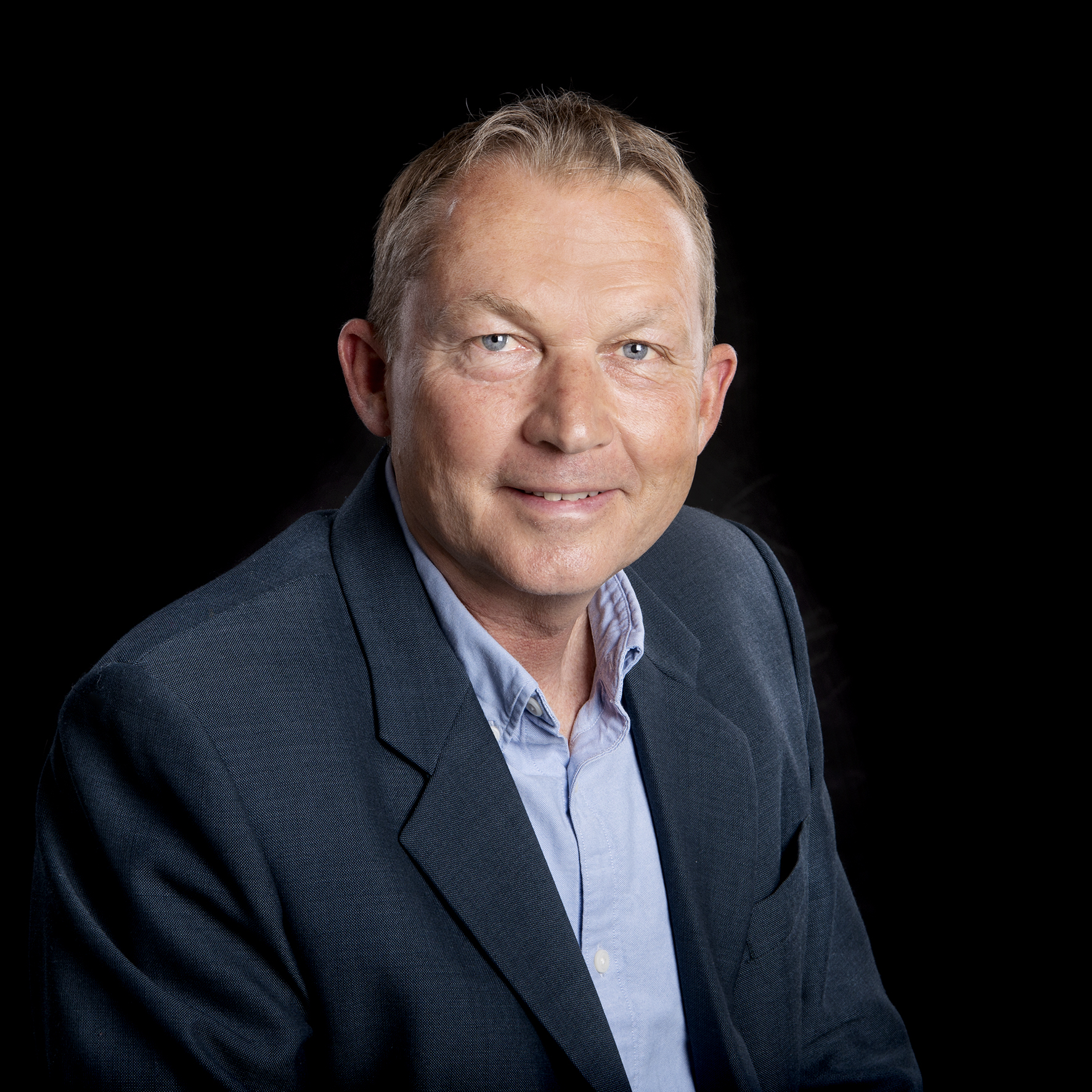
Michael Bech (Ph.D) – CEO and Founder
My continuous desire to follow the new development in aquaculture has resulted in a very comprehensive base of knowledge, a huge network of people and the ability to communicate with anyone from fish farmer to scientist.
- Aquaculture expert with 34 years of combined research and field experience
- More than 24 years’ experience with Recirculation Aquaculture Systems (RAS)
- Project development, assistance in any aspect of aquaculture and onsite production
- Access to extensive network of finance opportunities
About
Nordic Aquaculture Consult (NAC) was established to support clients who want to establish aquaculture projects globally. The main driver of NAC is to guide project developers through all steps of any aquaculture project based on 33+ years’ experience including in depth knowledge of most suppliers of Recirculation Aquaculture Systems (RAS).
NAC was founded by Dr. Michael Bech in 2020 and has been busy ever since with aquaculture projects in the US, Canada, Sweden, Norway, Denmark, Ireland, United Arab Emirates, Thailand, Mauritius, India, Vietnam, China, Romania among others.
Nordic Aquaculture Consult ApS., is a 100% owned subsidiary of Dr. Bech Holding ApS.
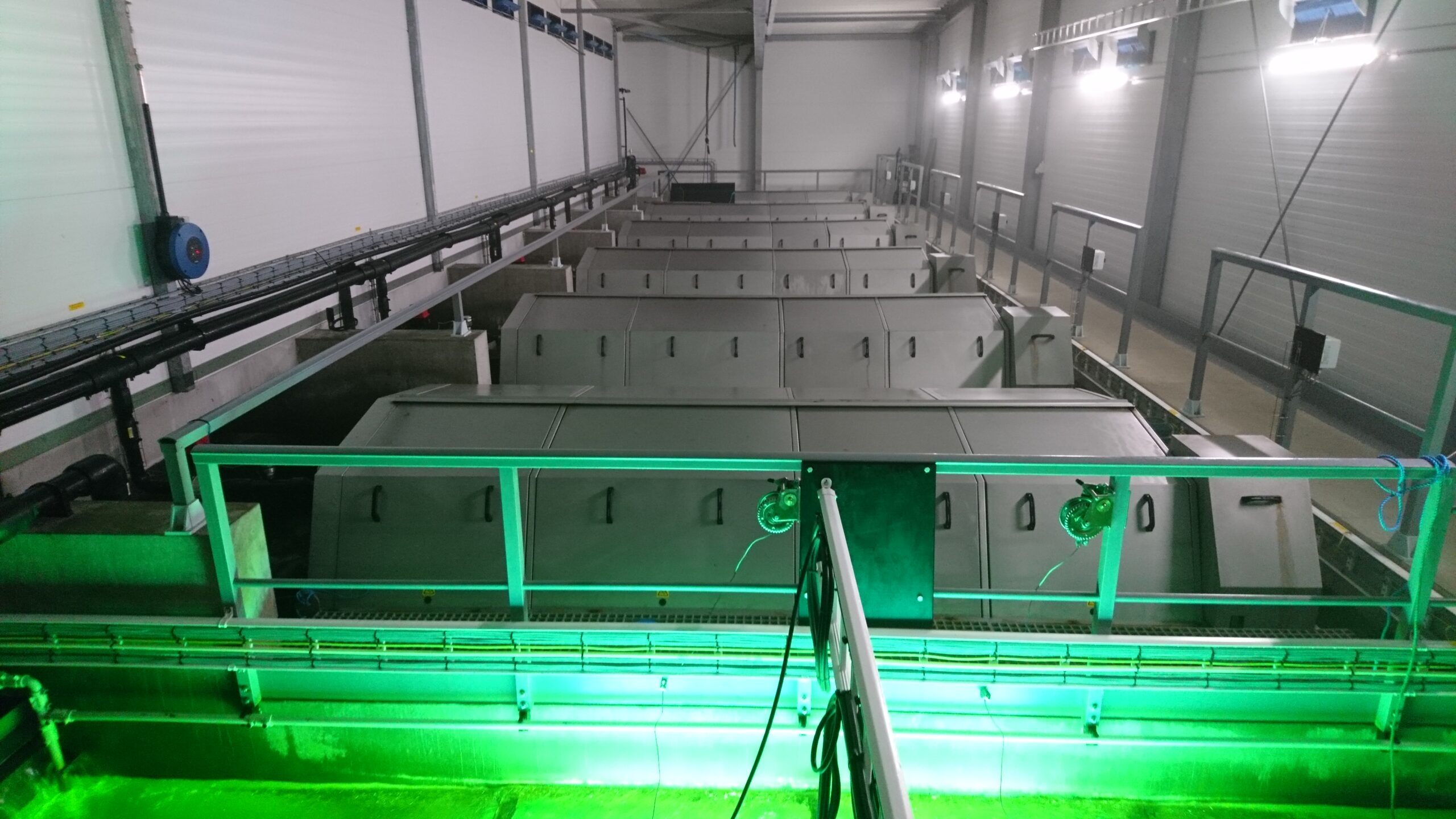
Vision
The vision is to provide an independent consultancy where the overall loyalty is towards the client emphasising their interests. To assist them to tick all the boxes during project development, assist to get the best possible deals with suppliers, secure the finance, overcome the permitting process, make sure the project will become financially viable and will have the proper support during start up production
Many aquaculture projects have failed to generate the expected returns and, in several cases, companies harvest only about 60% of what they planned. These projects lack adequate technical and biological due diligence. They are often based on unrealistic business strategies and production plans.
The vision is to use the experience gathered over 3 decades to assist and protect the clients against the pitfalls during project development to secure biological and financial viability.
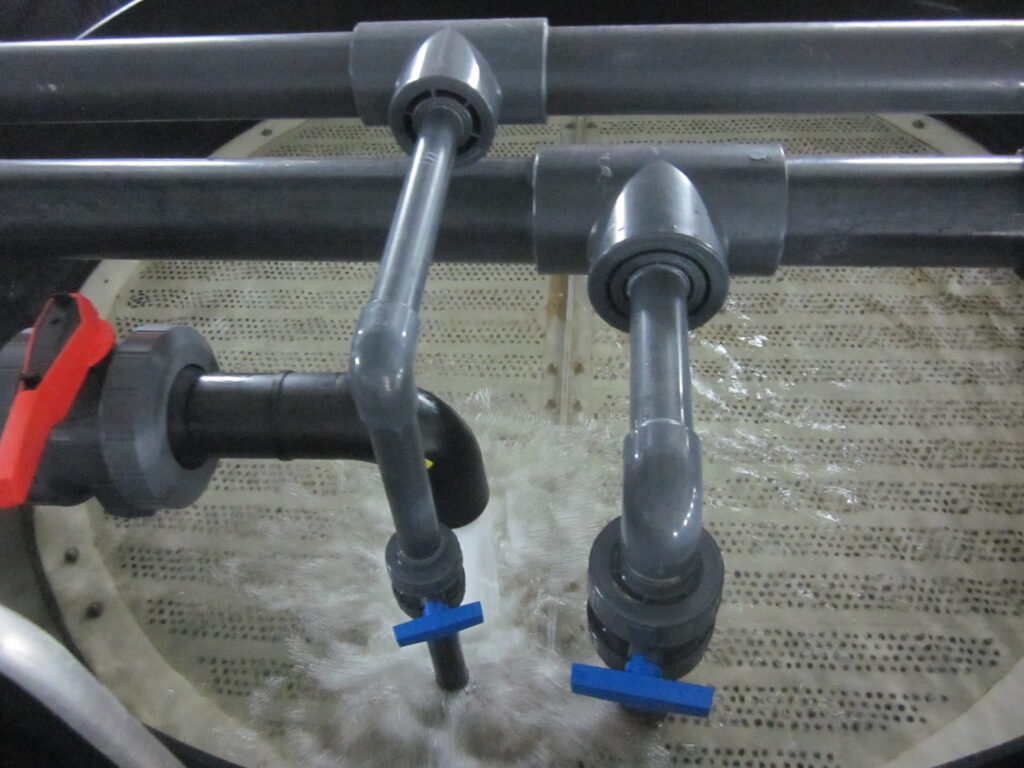
Cooperating Partners


























Services
Project development
The aim is to work closely with the client as a partner to define the project in detail. The success of any aquaculture project depends on the optimal choices in the planning phase which is the core of the consultancy. To identify the best strategy in relation to geographical location, availability of land, intake water quality, environmental permissions, local market analysis and available budget. Assistance to evaluate strategies to improve feasibility such as choice of equipment, selection of suppliers, size of facility, choice of species, production logistics and evaluation of risks based on experience from numerous projects in the range from EUR 1 – 300 million. An important task has been to provide the companies with financial information they could use for the investment community.
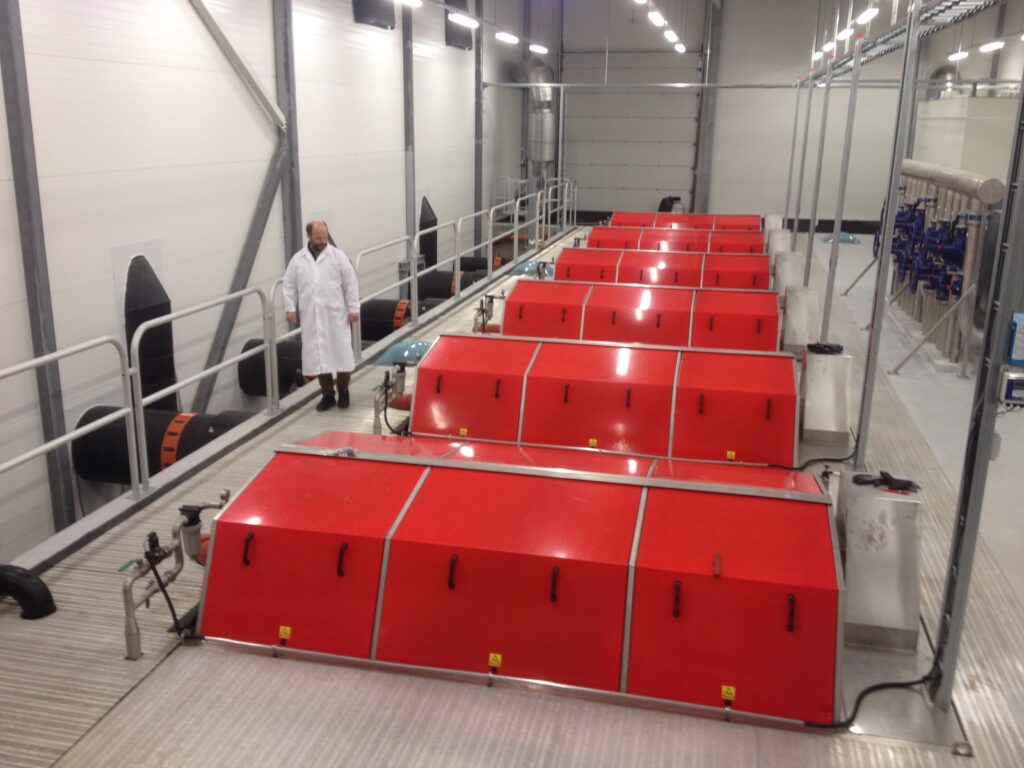
RAS design
The selection of RAS design depends on a number of factors such as species, production volume, if the farm should be installed in existing building or if it is a greenfield project. NAC offer support to dimension fish farms based on the bioplan of a specific species and the intended production volume.
The alternative is to select a RAS supplier and cooperate with them to design the farm. Consultancy to select the optimal RAS design will be based on 20+ years’ experience as employed by RAS suppliers such as AKVAgroup, Veolia, Krüger, (Kaldnes) and Uni-Aqua.
All designs and quotes from RAS suppliers will be evaluated in detail to protect the client against overpricing, too optimistic performance predictions and details which have been “forgotten” or left out. Besides using RAS suppliers individual retrofit of existing aquaculture systems is offered.
Assistance with shrimp farming is offered along with tailored RAS systems for shrimp farming based on hands on experience. Consultancy with more exotic species such as abalone, sea cucumber, oyster, mussels and seaweed are also offered.
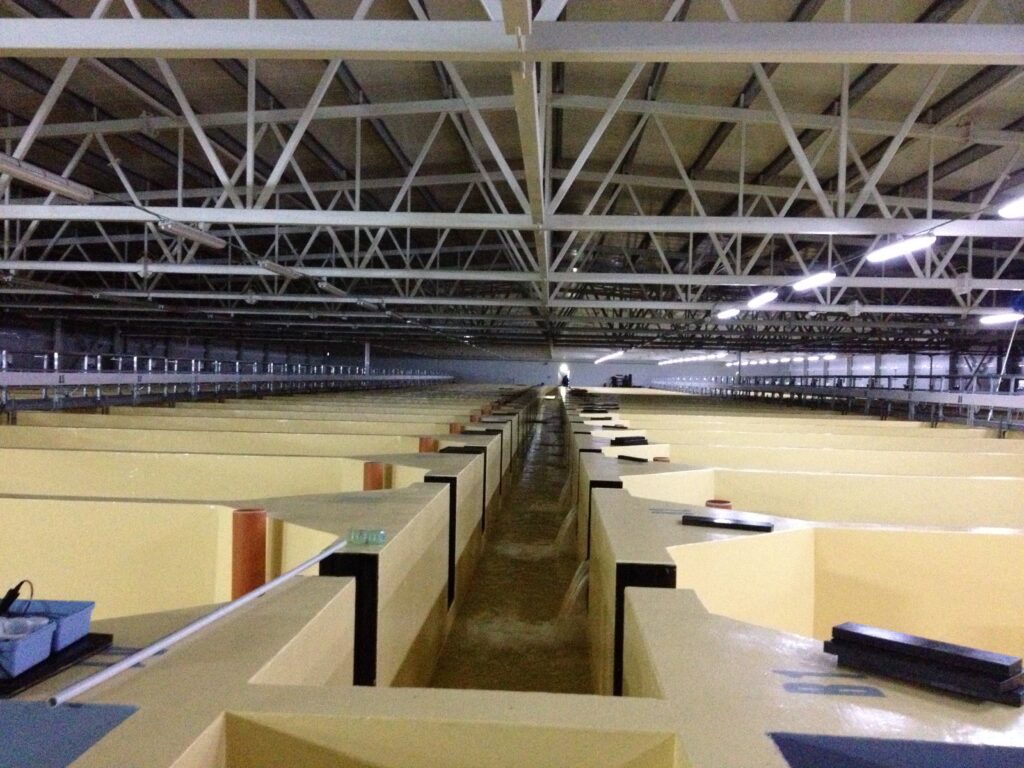
Wastewater treatment plants
Complete wastewater treatment plants tailored to the discharge permits of the site will be defined and priced.
Various techniques for dewatering of sludge will also be offered along with different methods to utilise the sludge for biogas, fertiliser, single cell protein or other applications.
Besides treating the water going out the available source of intake water will also be evaluated preferably based on water analysis from a certified lab. Based on that evaluation a suitable treatment of the new raw water will be defined and priced.
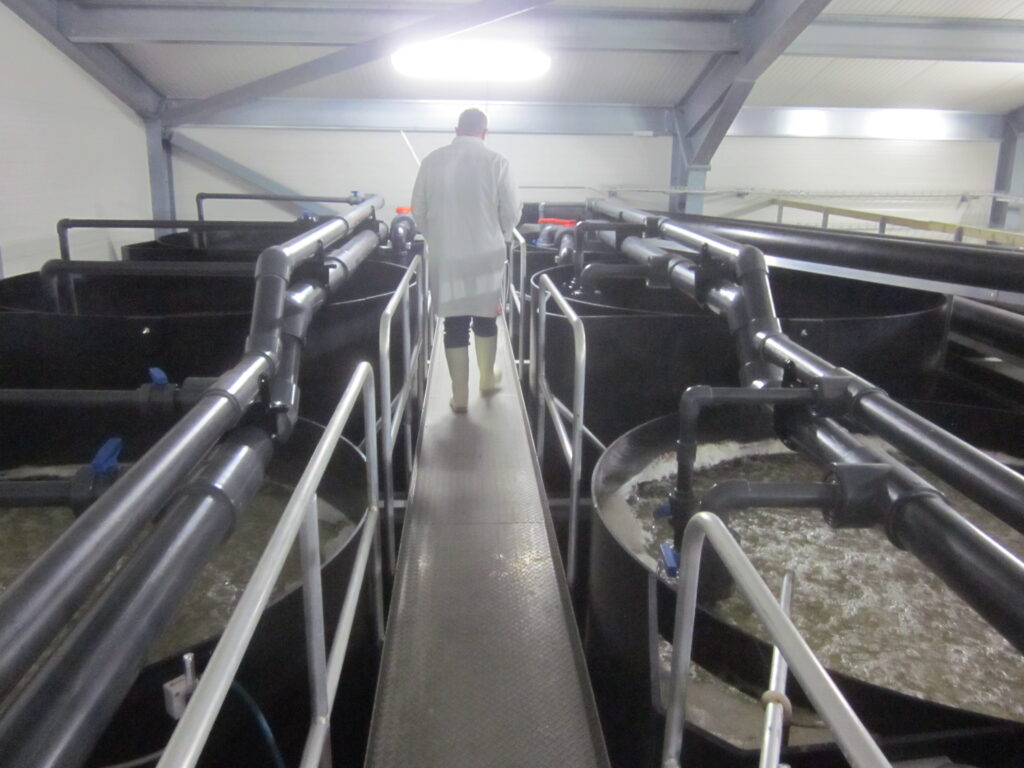
Environmental permissions
The progress of RAS projects is often limited by environmental restrictions where we can help obtain the permissions. How to get the environmental permits depends on the geographic location and is often a long and tedious process dragging out for years in some countries. Negotiations with government or municipal institutions and participation in hearings with the public around the site is often required where NAC will support the client. The most effective way to get through the process within reasonable time is to be able to provide complete wastewater treatment solutions which will reduce the effect of the discharge from the farm well below the values of the permit which is one of the core areas of NAC.
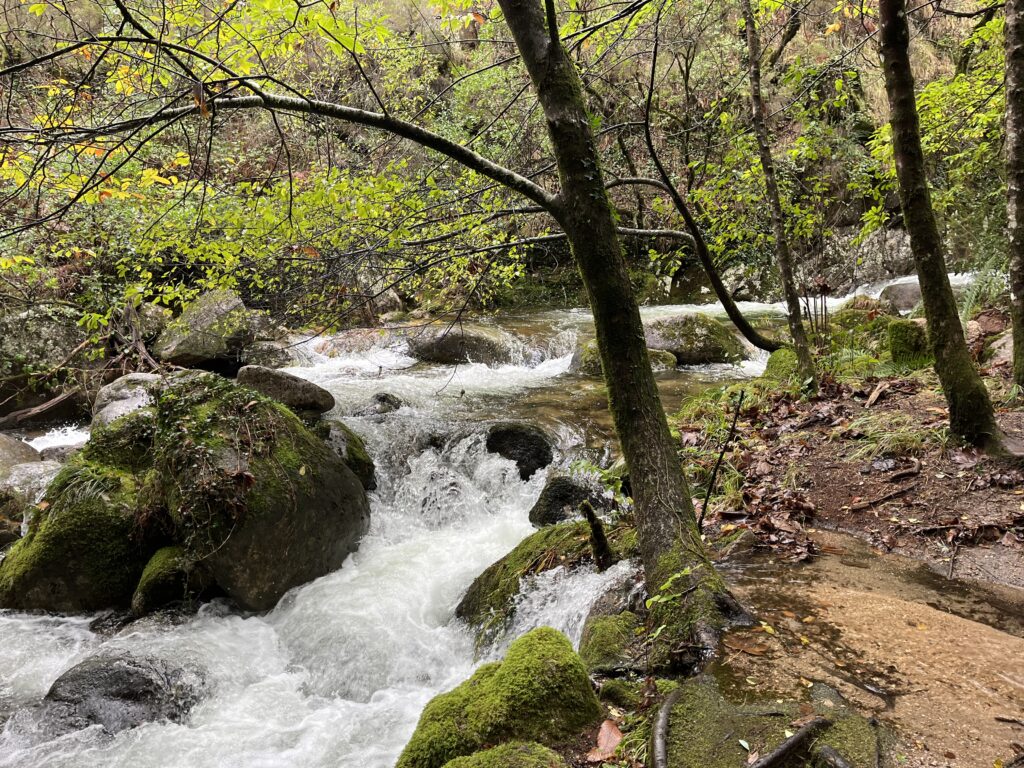
Bioplans
The bioplan is based on growth models with predictions of feed conversion ratio (FCR) and Size Specific growth Ratio (SGR). The bioplan is the basis of all design as it predicts the biological load of the system in terms of feed at full production depending on the chosen production logistics. The production logistic is tailored for each project according to preferred harvest size and availability of eggs or juveniles. The simulation of the production using the specific growth model and logistics will dictate the overall design and dimensioning of the system. The RAS components such as Moving Bed Bio Reactor (MBBR), degasser, oxygenation, mechanical filtration, UV treatment etc. are dimensioned after the feed needed for the production and the tank volume is dimensioned after the biomass of the system.
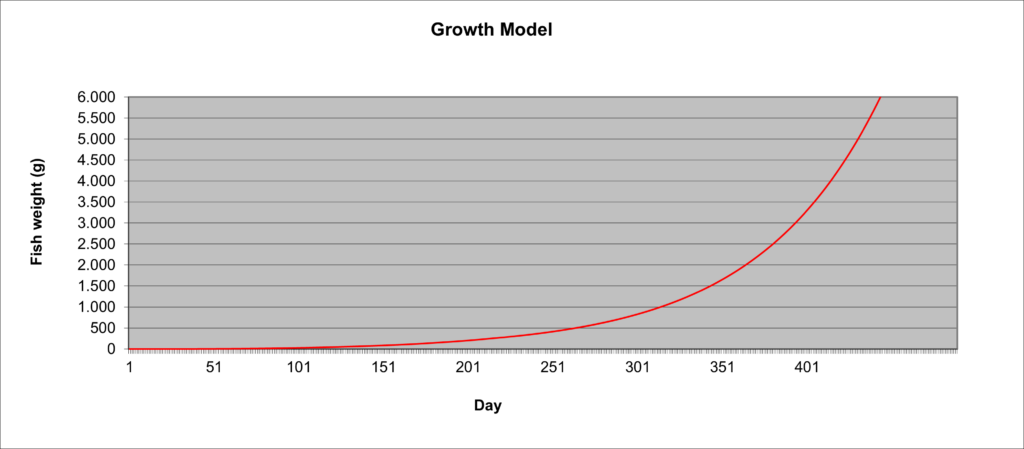
Feasibility Studies
The goal of the Feasibility Study is to provide an evaluation of the economics related to the production of the chosen species at the proposed facility.
After the feasibility evaluation you will know quite accurately what the production cost per kilo fish and the key financial figures such as payback time, IRR and EBITDA including the financial consequence of different sales prices.
The feasibility report could also contain a plan for the cash flow based on months from project start and 15 years ahead.
The financial calculation is based on estimates of the total cost of a farm all included and input of local prices of feed, kWh, oxygen, manpower etc.
The final report is an excellent tool to obtain financing as it describes quite accurately the potential of the project. It can be used to attract private investors or as the foundation to obtain support from organisations such as Danish Export Credit Foundation.

Financing
The progress of large RAS projects are often limited by finance where we can offer feasibility evaluations for the investors and support to obtain funding. NAC has a huge network of potential investors of large scale RAS projects. These connections will be offered and we will assist you during the meetings with these potential investors to present the project. An important part of the cooperation with potential investors is the clarification of risks and what has been done to mitigate these risks. Another potential source of finance is the introduction to the Danish Export Credit Foundation (EKF). EKF is backed up by the Danish State and will be able to provide bank guarantees to the local banks in order to secure cheaper loans.

Market analysis
NAC can assist to perform market analyses to identify the sales price of the fish and if it is an advantage to process the fish to head on gutted (HOG), as fillet or as smoked fillet. These scenarios can be evaluated during the feasibility study where the differences in manpower and equipment will be evaluated in relation to the value of the products.
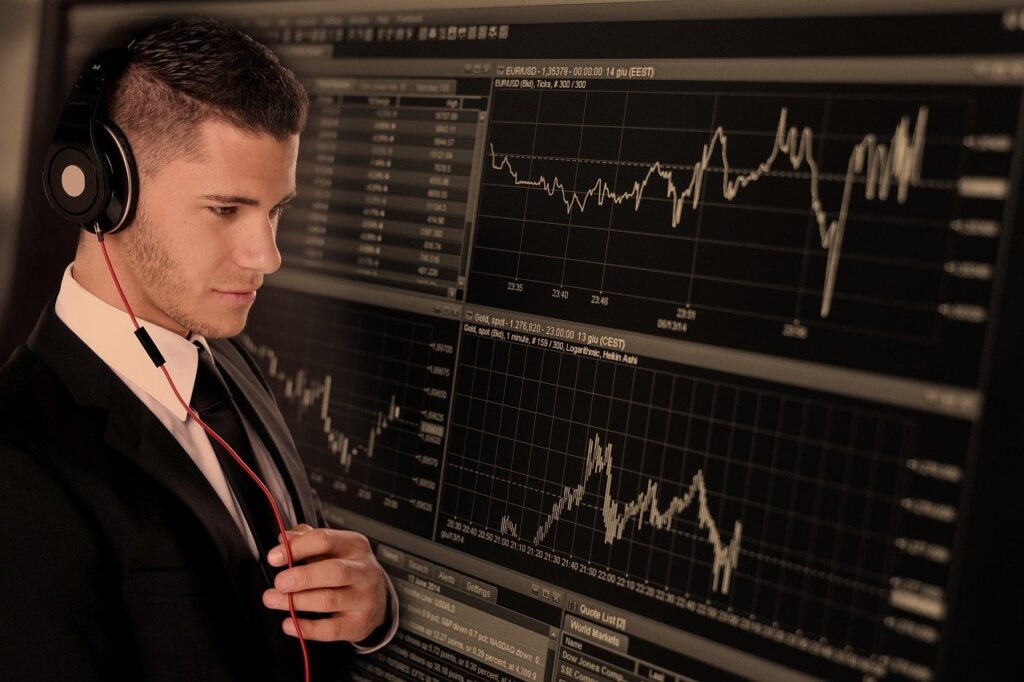
On site assistance
NAC has extensive hands on experience with both hatchery technology and grow out systems for a number of different species after years of employment at a fish farm in Denmark and several farms in South East Asia.
After working with recirculation aquaculture systems in various companies such as AKVAgroup and Veolia the start up of new RAS farms has always been part of the delivery. How to fine tune a newly constructed RAS facility is a very important process where the in depth understanding of the design behind the farm and the biology of the species is essential to get the best possible performance of both the technology and of the fish in particular.
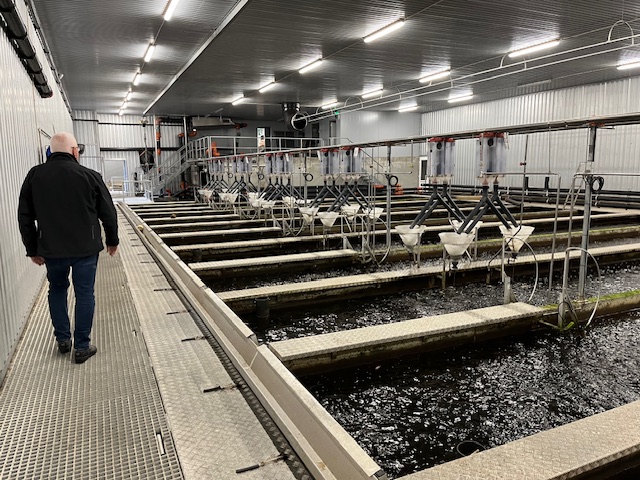
Species
We support with the bioplan and production logistic planning for a number of of species such as rainbow trout, brown trout, arctic char, salmon, yellowtail amberjack or kingfish (Seriola lalandi), greater amberjack (Seriola dumerili), barramundi (Lates calcarifer), species of grouper, snapper, pompano, tilapia, shrimp, abalone, oyster, mussels, seaweed among others. We also support with species specific design of and development of production systems from broodstock facilities, incubation systems, hatchery technology, nurseries and grow out systems tailored for these species.
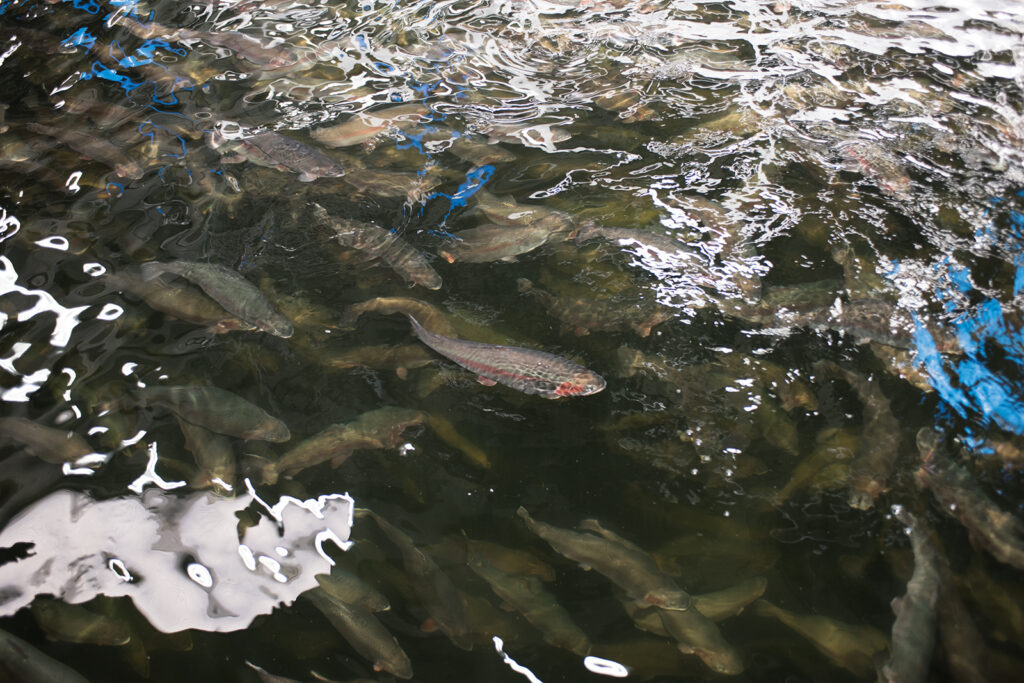
Heating and chilling
The advantage of landbased RAS is that any species can be produced anywhere. An important aspect of the evaluation is what it requires in terms of heating and chilling to produce a certain species at a certain location. Today cold water species such as salmon are produced in the United Arab Emirates and warm water species such as shrimp and kingfish are produced in Northern Europe. The feasibility of these projects depends on the cost to maintain the optimal temperature of the water. How much power is needed, the cost per kWh and the cost of the heating/chilling equipment. The calculation of the energy requirements is affected by heat produced by the metabolism of the fish, energy transferred from pumps and motors in contact with the water, energy transferred from the the air used for degassing and aeration of biofilters. It is a complex calculation and a lot can be done to reduce the cost using cross exchange of water in with water out and the use of alternative sources of chilling such as groundwater instead of air to air.
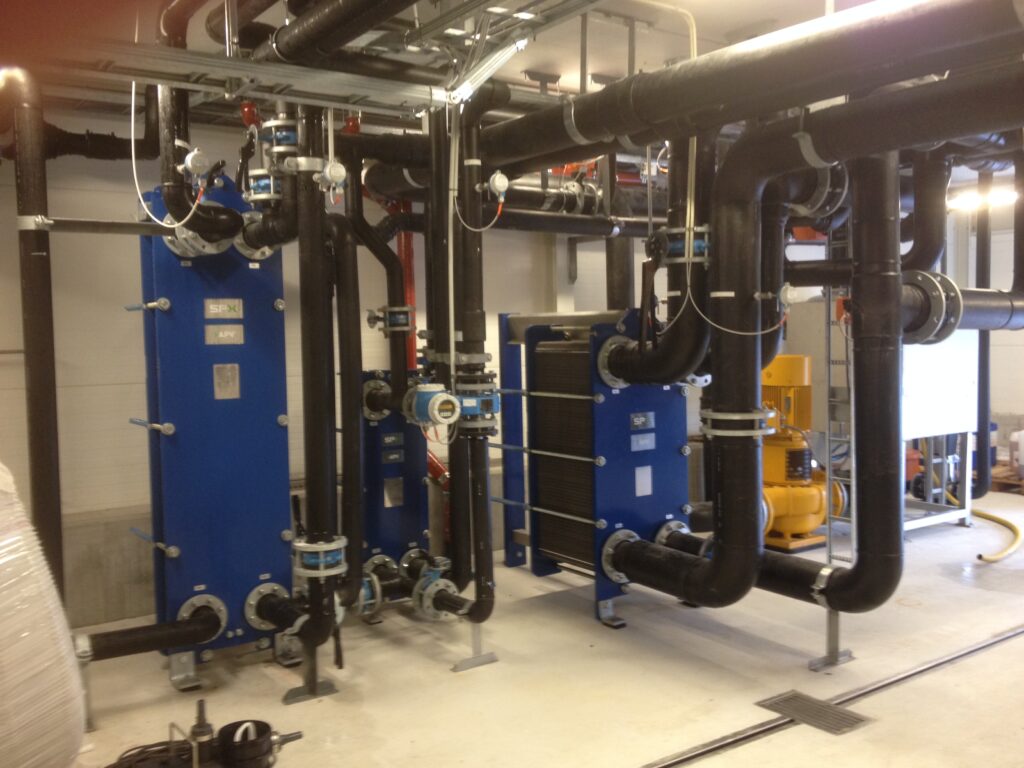
Product Development
The aquaculture industry is the fastest growing area within food industry and it is a very attractive market to penetrate with new products. We have assisted several clients to identify if a specific product has an application in aquaculture. We have been quite successful to design tailored marketing material for the aquaculture industry and to assist selling the product using our huge network in the industry.
We have been working in different areas from sensor technology, waste water technology including sludge treatment, media for biofilters and more advanced technology related to the use and control of bacteria to improve water quality.
We have extensive experience with technologies related to the mitigation of off flavor problems by controlling bacteria in aquaculture systems producing geosmin and methylisoborneol.
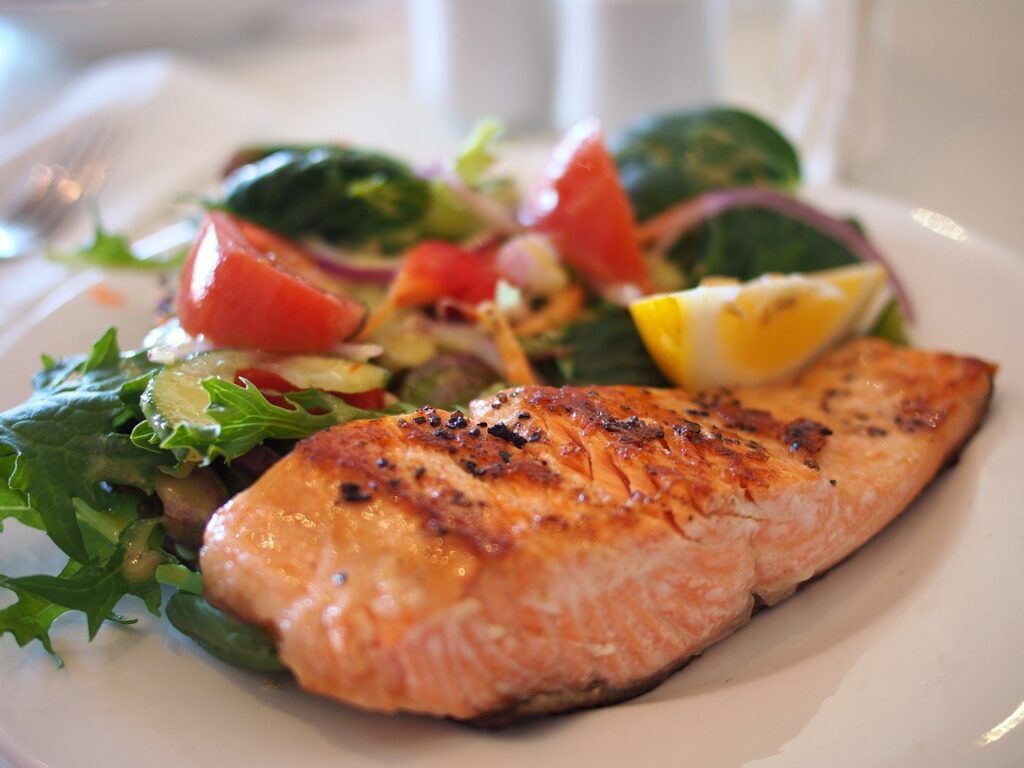
Experience
2020-present: CEO and owner of Nordic Aquaculture Consult Aps.
Independent consultant with focus on RAS projects in the US, Canada, United Arab Emirates, Southeast Asia, Sweden, Norway, Denmark, Ireland, Mauritius, India, Vietnam, Portugal, Romania among others.
2015-2020: Project Developer of recirculation systems (RAS) – Veolia
Development of new aquaculture projects in cooperation with Veolia business units in mainly USA, Canada, South Africa, Japan, United Arab Emirates, Norway and Sweden. Delivery of a grouper farm in Thailand. Support and onsite assistance of RAS 2020 systems in Norway, Denmark and Switzerland.
2007 – 2015: Technical Advisor. AKVA group.
Responsible for marine hatcheries for kingfish in Chile, Australia, UAE and RAS facilities for salmon, seabass, turbot, grouper and kingfish. Sea cucumber hatchery, abalone farming systems and Algae production system.
2006 – 2007: Aquaculture expert – Ministry of Foreign Affairs, Denmark
Aquaculture expert in Bangladesh with the purpose to evaluate impact of the Danish aquaculture development aid programme from 1990 to 2006.
2001 – 2006: Hatchery manager at Venoe Fish Farm (RAS), Denmark – BioConsult Ltd
Producing turbot, sole and flounder based on the extensive technique using copepods as main feed.
1996 – 2000: Aquaculture expert – Ministry of Foreign Affairs, Denmark
Employment at Phuket Marine Biological Centre (PMBC), Thailand. Design and development of Aquaculture methods for mass production of commercial important marine species.
1995-1996: Research advisor – EDUPLUS Canadian Consultancy firm
Employment at Bogor University, Indonesia. Educate Indonesian students in tropical aquaculture.
1992 – 1995: Aquaculture expert – Ministry of Foreign Affairs, Denmark
Phuket Marine Biological Centre (PMBC), Thailand during research on aquaculture techniques.
1992. (4 months): Research Assistant – University of Aarhus Denmark
Sediment analysis of core samples from Limfjorden with the purpose to establish fluctuations in salinities during the last 5000 years. Conducted at Roenbjerg Marine Biological Station, Denmark
1991– 1992: Phuket Marine Biological Centre (PMBC), Thailand.
Employment at Phuket Marine Biological Centre (PMBC), Thailand during research on hatchery and grow out techniques for valuable marine fish species such as grouper and molluscs such as abalone.
1983 – 1985. Carpenter
1980 – 1981. Naval Station Faroe Islands.
Education
2000 – 2002. Ph.D. Biology. University of Southern Denmark, Odense.
1986 – 1991. Master of Science. Biology. University of Aarhus Denmark.
1981 – 1983. Ry. Construction Company. Denmark. Apprenticeship as carpenter
Languages
Danish – Mother tongue
English – fluent speaking and writing
German – reasonable speaking
French, Spanish and Thai – simple communication.
Public speaker
Do you need a customized speech or presentation for your event or organization? Both for small or large events, conferences, organizations and companies.
Example:
2023 – Singapore, World Aquaculture Society – “The feasibility of landbased RAS projects – how to make the right choices ”
2023 – Romania, International aquaculture conference Salt- and Freshwater Aquaculture in Europe— Sustainable Seafood for the Future. “Project development of a freshwater fish farm based on Recirculation Aquaculture Systems (RAS)”
